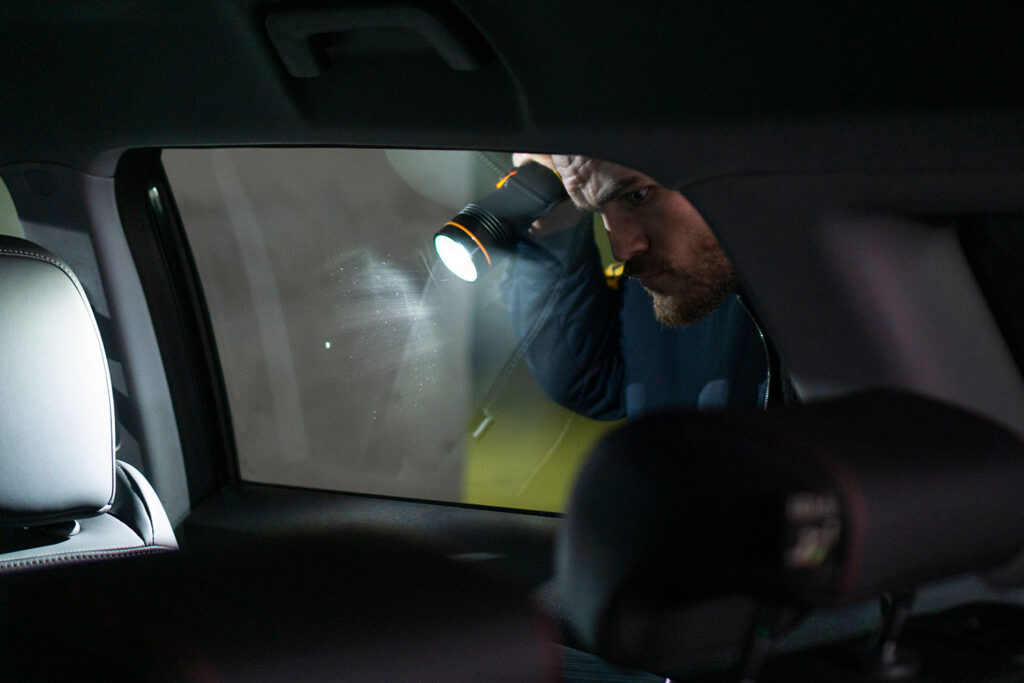
Plain View Exception to the Fourth Amendment: A General Discussion
Generally, the Fourth Amendment to the United States Constitution and Article I, Section 10 of the Minnesota Constitution require police to attain probable cause and a warrant before a search of property or seizure of a person will be deemed reasonable and legal. A search or seizure may still be deemed reasonable and legal if it falls into any of the judicially recognized exceptions to the warrant requirement – plain view; search incident to arrest; consent; stop and frisk; automobile; or emergency. This post will focus on the “Plain View” exception to the Fourth Amendment warrant requirement.
Plain View Exception – What does it mean?
Under this doctrine, incriminating evidence inside a vehicle, on private property, or on a person, in plain view, may be seized without a warrant. This applies as long as the officer: (1) has a lawful right to be where he/she is when the item is seen; (2) has a lawful right of access to the item; and (3) the incriminating nature of the item is immediately apparent (i.e. probable cause to believe the item is contraband or other evidence of a crime). Police officers may rely on trained intuition and observations drawn from their experiences that may escape the untrained person.
Only those items in “plain view” may be seized and searched. There is an important differentiation between items in plain view within a motor vehicle and those inside a private residence. An ordinary person has a higher expectation of privacy within his/her own home, than inside of his/her vehicle. Because of this, a police officer may seize an incriminating item in plain view inside of a vehicle without a warrant. But, if the officer sees an item inside the home, in his plain view, he still cannot enter the home to seize the item without a warrant, consent to enter, or emergency circumstances — providing the officer with a lawful right to access the item. When an item is improperly seized it must be suppressed and cannot be used against the person at trial.
Plain View Exception in Minnesota – State v. Chute, A15-2053 (Minn. Ct. App. November 21, 2016).
The Court of Appeals held that when a police officer enters the curtilage of a home for the purpose of conducting a warrantless search, the officer’s position within the curtilage is not lawful and the warrantless search violates the Fourth Amendment.
Facts
In this case a camper with a unique set of bolts on the front of it was reported stolen. The owner of the camper spotted it in the yard of a residence off of County Road D in Maplewood. From the street, the police officer confirmed that the make and model of the camper matched the theft report. The officer then walked up the driveway toward the house, identified the unique bolts and met the homeowner. The homeowner told police that he repaired the camper himself using the unique bolts. The officer searched the camper, home and garage. Subsequently, the homeowner was charged with receiving stolen property.
Court of Appeals Decision
The “curtilage” of a home is defined as the area immediately and intimately connected to the home, such that a resident has a reasonable expectation of privacy in it. Some parts of the curtilage are deemed “impliedly open” meaning that police may go where visitors or the mail man are expected to go, such as up the driveway or to the front door. The court reasoned that in the context of the Plain View exception, whether an officer is legitimately on a person’s driveway (curtilage) depends on the officer’s objective intent/purpose for entering the property. Police do not have a license to enter the curtilage if their behavior reveals a purpose to conduct a search.
Here, the court determined that the officer entered the homeowner’s property for the purpose of conducting a search. The court noted several facts support this contention, including: The officer walked directly to the camper instead of to the front door (to speak to the homeowner); the officer took steps to identify the stolen property before contacting the homeowner; and the officer contacted the manufacturer to determine the location of the VIN number and found it on the camper. Under all of these circumstances, the officer’s intent to search made his entry onto the curtilage unlawful. Therefore he was not in a place that he was entitled to be when he attained probable cause to identify the stolen camper and had no lawful right of access. The court ruled that the evidence must be suppressed and could not be used against the homeowner.
If you face serious criminal charges, you need an experienced criminal defense attorney.
The attorneys at Sieben & Cotter understand the complex legal issues surrounding Fourth Amendment searches and seizures. The ability to recognize and successfully challenge an unreasonable and illegal search or seizure can mean the difference in winning or losing you case. We will work hard to achieve a favorable outcome for your specific circumstances.
Call Sieben & Cotter at 651-455-1555 or send a request for more information and arrange your free consultation. We will arrange an in-person meeting at our office, or will meet you wherever is most convenient for you.
